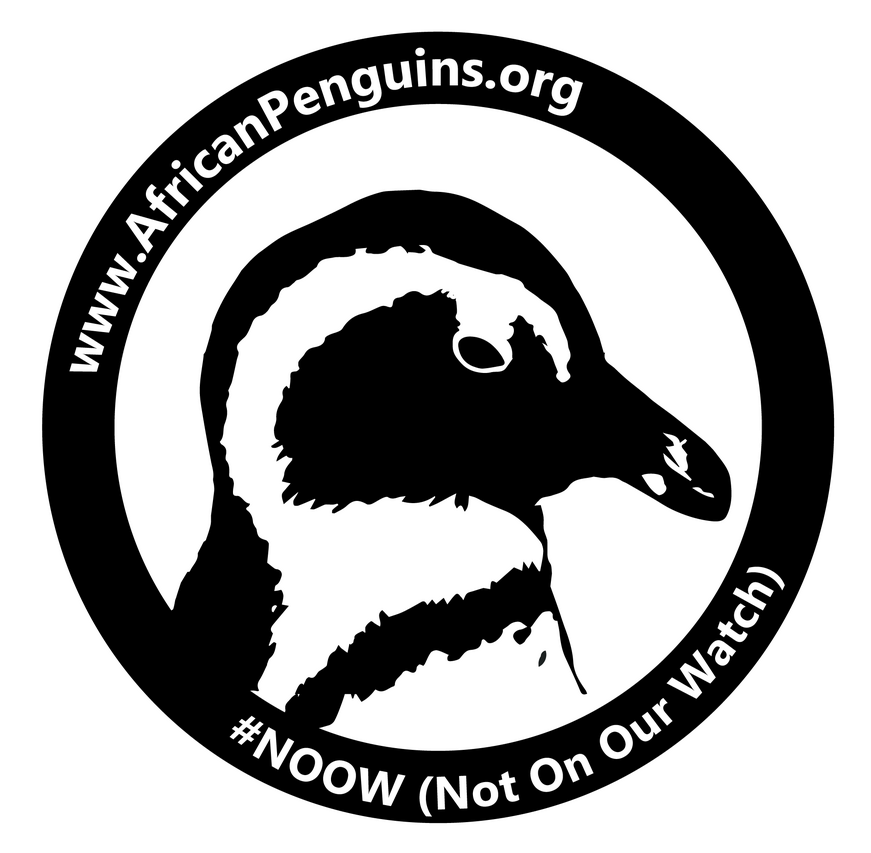
Not On Our Watch
What is #NOOW?
#NOOW drives to create a movement and raise awareness about the need for urgent action to reverse the decline of the African penguin population in the wild. #NotOnOurWatch will the African penguin become extinct in the wild.
Backed by the Two Oceans Aquarium Foundation, The Florida Aquarium, Georgia Aquarium, and Zoos Victoria, the campaign aims to raise support for wise decisions to be made by the relevant authorities concerning the future of the African penguin.
#NOOW is also about building pride in African penguins as a unique and charismatic part of South Africa's incredible biodiversity.

Why #NOOW?
African penguins need our help.
In the early 1900s, there were between 1.5 and 3 million individual African penguins across the species’ range along the Namibian and South African coasts. It is estimated that there were close to 1 million pairs on the West Coast’s Dassen Island alone. However, by the mid-1950s, only 10% of these numbers were left due to egg harvesting and guano removal. Worryingly, since 1979, when the first count of the major South African colonies was conducted, the breeding population has declined from ~55 200 pairs to less than ~10 000 breeding pairs in 2024.
To put this in perspective, if every wild breeding penguin in South Africa had a seat in the Ellis Park Stadium in Gauteng, South Africa, the stadium would only be one-third full!
The current African penguin population is only about 8 000 breeding pairs in South Africa and 1 200 breeding pairs in Namibia, the lowest numbers ever recorded. With such a small number of individual birds in the wild, the population will be functionally extinct by 2035.
This means that the population will be so small that it will no longer be able to breed enough to increase numbers again. African penguins were classified as Endangered on the Red List by the International Union for Conservation of Nature (IUCN) in 2013 and were recently uplisted to critically endangered in 2024. If we want our children to see African penguins in the wild, the time for action is NOW.
If we wait any longer, it will be too late. We need healthy oceans to support marine life now and into the future, especially if we want our children to see African penguins in the wild.


What are the threats to the African penguin?
African penguins are faced with multiple pressures that are contributing to their decline.
Historically, egg harvesting and guano collection were the chief causes. However, the more recent decline has been attributed to food shortages caused by shifts in the distributions of their prey species, namely declining small pelagic fish stocks (such as anchovies and sardines) and direct competition with a commercial purse-seine fishery for food.
A growing threat is the expansion of harbours and increased ship traffic, as many African penguin colonies occur in areas that are near existing or planned shipping routes or ports. Another emerging threat for the African penguin is ship-to-ship bunkering, which has started in Algoa Bay and is planned to expand to the West Coast. A large oil spill, such as the four in Algoa Bay since 2016, in the proximity of a breeding colony, could destroy much of the remaining population.
Marine noise pollution is another emerging threat to African penguins, with evidence suggesting the scale of this impact could be significant. The maritime industry, including exploration for oil and gas reserves using seismic surveys, is a further looming threat.
Harvesting guano removed the nest material used by the penguin in the past. Although guano harvesting is no longer allowed, a lack of nesting habitat is a concern. This results from urban spread and is affected by other threats. This is being addressed through revegetation efforts at some colonies, and the deployment of artificial nests is being tested at several colonies.
Other threats include disease outbreaks, extreme weather events, localised predation, and human disturbance at breeding colonies. All these threats require carefully implemented management plans for each penguin colony.

How can I support #NOOW?
- Sign the petition to save the African penguin.
- Email your encouragement to South Africa’s Minister of Forestry, Fisheries and the Environment, Dr Dion George.
- Visit the website: www.africanpenguinnotonourwatch.org.
- Share your love for penguins on social media using the hashtags #AfricanPenguin #NOOW.
- Please contact info@africanpenguins.org if you would like to be involved in the #NOOW campaign.

